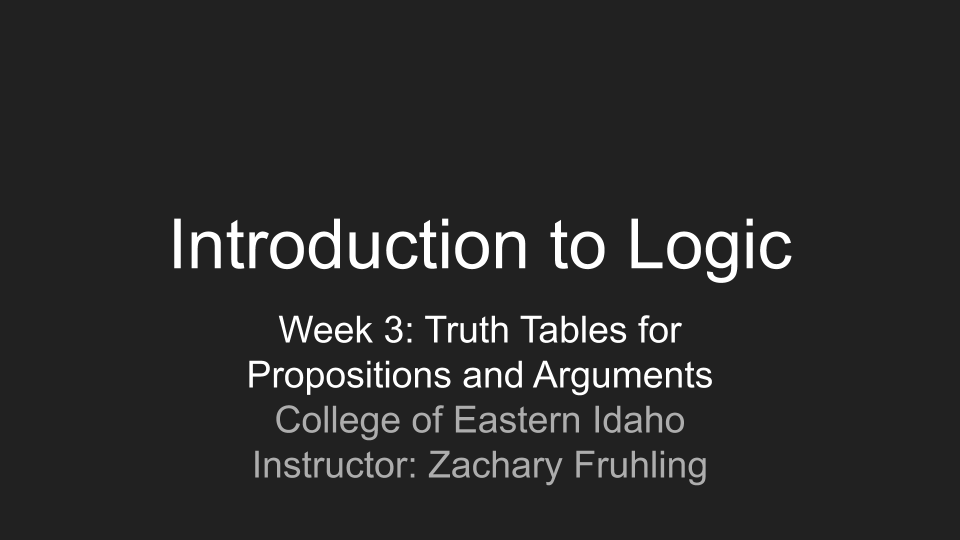If Nietzsche Was a Prophet of the Philosopher of the Future, I'm the One He Prophesied About! (And So Are You....)
According to Nietzsche, the present age is a temporary one, with its overestimation of the value of objectivity and of man as a civilized, moral, pacified creature. Although the deconstruction of Western philosophical values such as objectivity, rationality, and universality seems to result in nihilism, which Nietzsche discusses in The Will to Power, nihilism itself is only temporary, eventually to be replaced by a future philosophy, and future philosophers, who are able to transcend both the moralizing averageness of the Christian Era and the nihilism of the present post-Christian age.
Most philosophers today seem to fall into one of two camps:
They are traditional philosophers, through and through, cherishing objectivity, universality, rationality, and morality, are thus the cultural descendants of Socrates and Plato, through Descartes and Kant, no matter what stances these philosophers happen to have on particular philosophical, moral, or political issues.
They are postmodernists (or deconstructionists, or critical theorists, etc.) who have rebelled against objectivity, universality, and cultural hegemony so much that they are unable to think constructively; they are unable to truly embrace the possibility of subjective meaning and creativity in their own lives, however much they have glimpsed the notion of subjective meaning intellectually. These philosophers are stuck in nihilism, unable to transcend it because of the vestiges of the legacy they inherited from the first category of philosophers above.
You may already familiar with Nietzsche’s phrase “Übermensch,” which refers to some hypothetical future philosopher who is finally able to transcend traditional philosophy with its reliance on objectivity and universality, Christian morality with its herd-like mentality and subjugation of the self, and the nihilism that naturally follows from the rejection of the previous two modes of being (traditional philosophy and Christian values). While many candidates for this Übermensch (sometimes translated as “Overman” or “Superman”) have arguably existed in the 20th and early 21st centuries in the history of philosophy—Foucault, Derrida, et al.—arguably these postmodern philosophers have been stuck in nihilism, deconstructing traditional philosophy and traditional philosophical, social, political, and moral structures but never quite reaching the pinnacle of the constructive vision of radical subjectivity and radical individualism that Nietzsche seems to champion. These postmodern philosophers are stuck in a Hegelian negation of, and reactiveness toward, traditional philosophy and Christian morality without really transcending them in the way that Nietzsche envisioned the philosophers of the future might do.
I’ve said elsewhere that “If Nietzsche was a prophet of the philosopher of the future (i.e., a prophet of the Übermensch”), I’m the one he prophesied about.” And in a way, this is something I’ve always felt. I’ve never been fully satisfied with the traditional mode of philosophy, however inspiring I find its edifice of rationality and quest for knowledge beneath the veil of reality to be. And I’ve never been fully satisfied within the confines of Christianity—from a religious, moral, or even metaphysical standpoint. Neither approach to life makes my heart sing with the romanticism, joyfulness, and life-affirming passion that have always constituted my innermost being. No, I was an Übermensch from the very start, struggling to stand on my own two feet but constantly pulled against my will in two opposing directions, neither of which was suited for me: toward the sky and the heavens by Plato and Jesus, and toward the sterile dirt and the lowlands of human existence by later thinkers, those sad postmodern philosophers who knew only how to think and live deconstructively instead of constructively.
With the unholy trinity of Christianity, traditional philosophy, and nihilistic postmodernism, it’s no wonder that intellectuals are sometimes taken to be (and often are!) pitiable, joyless, tragic people. The philosopher who is finally able to transcend that latent intellectual sadness (i.e., the false joy of these earlier stages of human development) will be a true philosopher—not some pitiful shell of a philosopher stuck in the cocoon of rationality, but a philosopher-artist and a philosopher-poet. I am that philosopher—someone with no cultural, academic, political, or social ties to philosophy as it’s been done hitherto; someone with enough individualism to break with the philosophical and moral herd to write my own life story as I go, inventing myself and reinventing philosophy, bending all of philosophy and all of reality to my own passionate, romantic, joyful, life-affirming whims, retelling the history and future of philosophy from my own point of view with little regard for critical reception, except for the few loyal readers who, even if they themselves have not completely broken free of their own intellectual and moral shackles, are somehow inspired by someone who has (else they would have unsubscribed by now out of sheer frustration at my radical individualism shining through like a beacon of hope in the gloominess of their boxed-in lives).
My dear friend and fellow philosopher of the future, Jessica Samuels, told me recently that it’s “ballsy” of me to claim to be the Übermensch. This is the highest of complements, of course, as it takes courage to embrace your own strength and individuality with reckless abandon, especially in the face of so much philosophical peer pressure to do and think of philosophy, and about one’s own life, in a certain way. (What higher compliment is there for me to give Jessica Samuels, in turn, but to consider her a fellow philosopher of the future—a genuine philosophical meeting of the minds, hearts, and souls? How rare and precious, even in the whole history of philosophy!) Yet, although I’ve described Nietzsche as being a prophet of this hypothetical philosopher of the future, the Übermensch, in reality there is nothing special or lofty about being an Übermensch. The Übermensch is not some hypothetical future philosophical messianic figure. Each of us individually, and all of us collectively, have the potential to be an Übermensch, to embrace our own radical subjectivity, inner strength, and creative artistry—not just artistically in a narrow sense, but broadly to define our own meaning and purpose, and to live the life that we want to live, not the life that others—from Socrates to Jesus—have chosen for us.
I may very well be an Übermensch, but as John Lennon once said in his song Imagine, “I’m not the only one.”—I’m not the Übermensch to the exclusion of everyone else reaching the same level philosophical, moral, and artistic individualism, living life and practicing philosophy constructively and creatively, as I have been able to achieve by remaining outside the philosophical mainstream (however much I enjoy poking the philosophical dragon inside the cave of its own making from my happier place just outside). Really, if you hide in an intellectual cave, feigning strength but in reality cowering in the darkness like an injured animal, should you expect any less? But I’m not here as a superior intellectual predator. I am Socratic in the truest sense of the term, rushing back into the cave—not the cave Plato described in the Allegory of the Cave (Republic, Book VII), but the cave he himself built around himself, and all of us, along with every philosopher since—to drag today’s philosophers kicking and screaming from their state of gloominess into a new state of philosophical joy; to reframe not just all of philosophy but to help philosophers, and all of humanity stuck either in philosophy, religion, or nihilism, reframe their entire lives, to truly embrace who they are and their own lives as they never thought possible.
My own life has been filled with sadness, heartache, unfulfilled hopes and dreams, and struggles of all sorts—many of my own making, but that’s the heavy price to pay for pushing through the limitations of Christianity, the false mountaintops (which were really just plateaus) of traditional philosophy, and the dreariness of nihilism; it’s the price of having truly lived on my own with my life being defined internally by my own will instead of externally by someone else. I’ve never lived someone else’s life, although I’ve dabbled in it from time to time and come up empty. But if my own past and present sadness is the price to pay for knowing a joy that few others will ever feel, in hopes of spawning that same joy in others, that’s a small price to pay for living a truly human life—“Human, All Too Human,” as Nietzsche once called it.
So yes, I am an Übermensch, not necessarily the one and only Übermensch, but hopefully the first of many as the consciousness of philosophers and of humanity in general reawakens after its long, dark, even peaceful and happy slumber. However lovely the dream might have been—and, believe me, philosophers and Christians have their happy dreams!—isn’t it better to be awake and fully alive, even with all the many struggles of life, than to seek refuge in a perpetual dream, or in the grandest and most precious and beautiful of delusions?
The time is at hand to awaken, and I am the mobile alert of your own caged-in life. All you have to do is open your eyes, stand up for once, throw off the weights and burdens others have placed upon your life and being (often long before you were even born!), and step into the light—not the blinding sun and false hopes of our present age—those idols of culture, knowledge, and religion so many seem to cherish—but the light of your own making as you project yourself forward into the life you build for yourself with your own hands, head, and heart, and from your own inner strength of character and purpose. You are not made in the image of anything; you are an Übermensch too!







